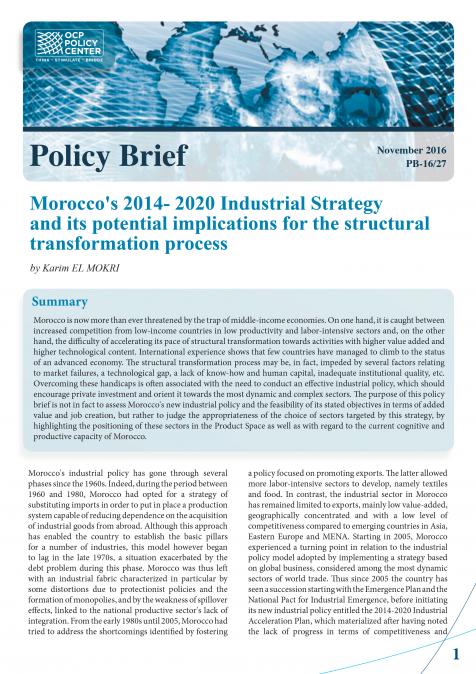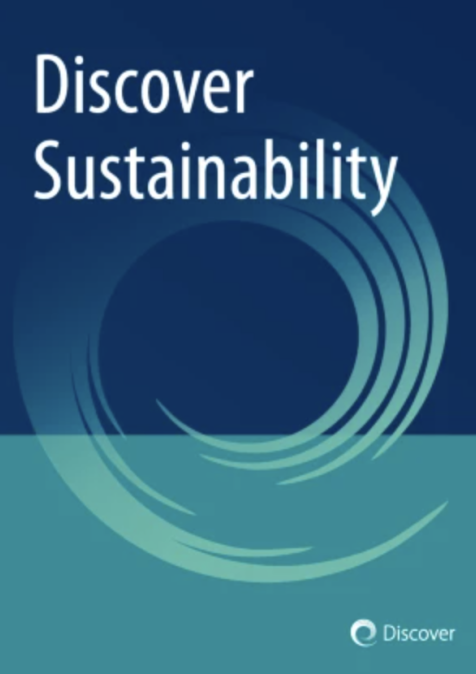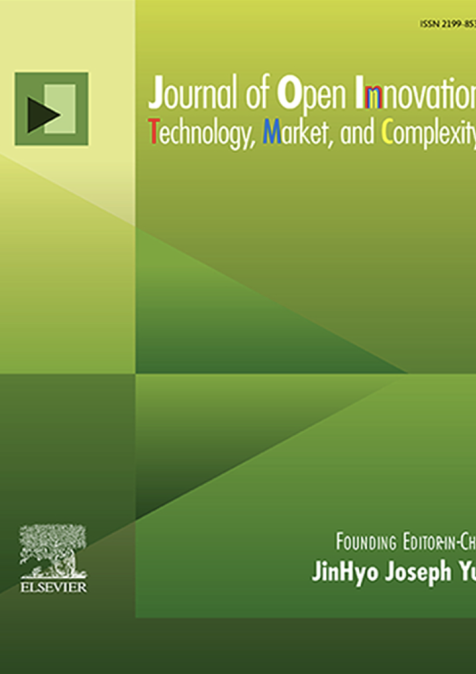Publications /
Policy Brief
Morocco is now more than ever threatened by the trap of middle-income economies. On one hand, it is caught between increased competition from low-income countries in low productivity and labor-intensive sectors and, on the other hand, the difficulty of accelerating its pace of structural transformation towards activities with higher value added and higher technological content. International experience shows that few countries have managed to climb to the status of an advanced economy. The structural transformation process may be, in fact, impeded by several factors relating to market failures, a technological gap, a lack of know-how and human capital, inadequate institutional quality, etc. Overcoming these handicaps is often associated with the need to conduct an effective industrial policy, which should encourage private investment and orient it towards the most dynamic and complex sectors. The purpose of this policy brief is not in fact to assess Morocco's new industrial policy and the feasibility of its stated objectives in terms of added value and job creation, but rather to judge the appropriateness of the choice of sectors targeted by this strategy, by highlighting the positioning of these sectors in the Product Space as well as with regard to the current cognitive and productive capacity of Morocco.










